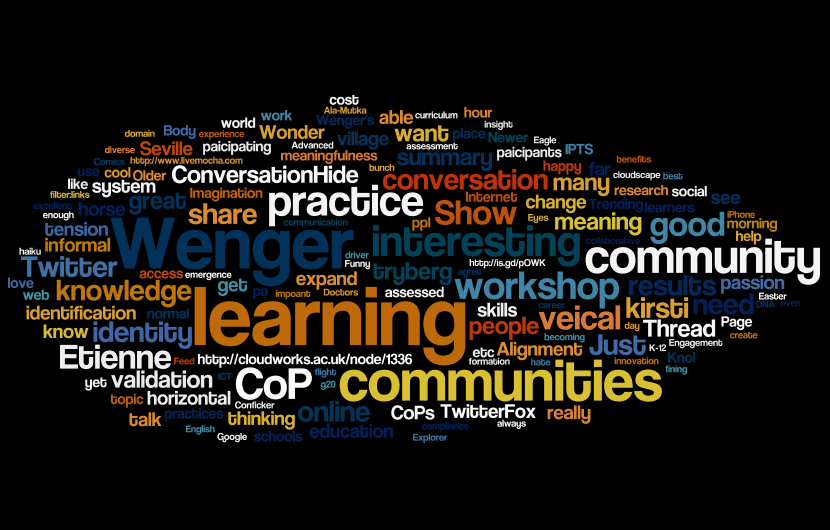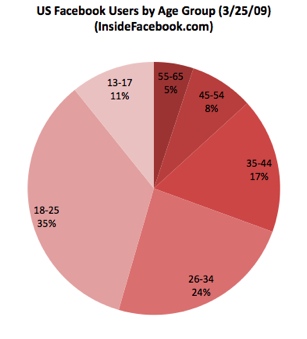“The vice-chancellor of London Metropolitan University, Brian Roper, resigned today in the wake of accounting mistakes which left the university £56m in the red.
Roper will remain at the university until December but has left his role as vice-chancellor with immediate effect, the university said.” Guardian, 19 March, 2009.
According to the Guardian, “the university is facing up to 550 job cuts among its 2,300-strong staff, following the revelation that it had been overpaid for students who failed to complete courses. It is understood to be taking a £15m funding cut this year and is in negotiations with the government’s university funding agency about how it will pay back a further £38m.”
Why am I writing a post on something so unexceptional as a University Vice Chancellor resigning? After all, it happens with increasing frequency.
The reason is I think it exemplifies what has gone wrong with our universities (at least in the UK). Education, as I have written before in an article called “e-Learning and the social shaping of technology” in a German language book entitled “Wissensgesellschaft”. Mythos, Ideologie oder Realität”, has become commodified. I don’t think the original English language text has ever been published so here is an extract and the full English and German versions are dnloadable at the bottom of this post.
“Perhaps the most notable discourse which has shaped the development of e-learning is that of privatisation. Richard Hatcher (2000) (cited in Ball, 2004) distinguishes between endogenous and exogenous privatisation. the latter refers to the bringing in in various ways, of private providers to public services. The former refers to the re-working of existing public sector delivery into forms which mimic the private and have similar consequences in terms of practices, values and identities. This is what Glenn Riwowski refers to as the process of “capitalism making public schools / universities into value / commodity providing enterprises…institutionally rearranged on a model of capitalist development”. Privatisation requires the commodification of education: “social relations conducted as and in the form of relations between commodities and things” (Bottomore, Harris et al, 1983). “Commodification encompasses both an attention to the naturalisation of changes which are taking place in the everyday life of our production and consumption activities and more general processes of capitalism and its inherent crises and instabilities which underpin the search for new markets, new products and thus new sources of profits” (Ball, 2004).
Commodification also embraces the displacement of use values by exchange values and describes how consumer culture becomes embedded in daily lives through an array of subtle process (Gottdiener, 2000).
There processes can be seen as taking a number of different forms in education. One is the replacement of exchange value for use value in academic labour (Wilmott, 1995). More fundamental possibly is the repositioning of learners or students as customers or consumers of education. Education becomes a service to be consumed, based on standardised curriculum products which can be exchanged through a market mechanism and delivered by private sector providers. In order to provide a transparent market, quality has to be measured and quantified through comparable indices (piloted by the UK through Standard Assessment Tests and taken to its ultimate limit in the international Pisa study). Knowledge must be available as objects and consumption acknowledged through exchangeable credit based on outcomes.
The development and implementation of e-learning, from the 1970’s onwards corresponded with the emergence of life long learning as a major theme on educational policy discourse. The shortening of the product life-cycle, the growing rate of technological change and implementation and increasing global competition required the extension of learning throughout the working life (Attwell and Heidegger, 2001). Computer based learning offered the promise of the cheap provision of mass continuing training. Furthermore, distance learning could be extended to allow the expansion of university education without commensurate investment in faculty and infrastructure.
However this limited conception of lifelong learning was accompanied by three further policy prerogatives. First was that learning should be linked to the needs of the employment market, rather than to any broader conception of educational goals. Second was the idea of employability: that it was the responsibility of the learner (or consumer) to maintain and update their personal skills and knowledge to meet market demand (in the form of employment). The third and linked policy was that the extension of training would be controlled and provided by the market, with training ‘on demand’ and delivered by the private sector. Thus e-learning technologies would be developed by the Information Technology sector (despite their frequent lack of educational experience and expertise) and regulated by demand. This did not obviate the need for market intervention which took different forms in different countries. In some cases it took the form of measures to stimulate demand, as in the case of the UK government’s ill judged attempt to provide individual training vouchers or in other cases attempt to regulate supply as in Greece through the regulation of training providers.
Of course there are multiple discourses in education and contradictory developments and trends in the introduction of e-learning. But as Basil Bernstein, referring to public general education policy, has pointed out “market relevance is becoming the key orienting criterion for the selection of discourse, their relation to each other, their forms and their research. This movement has profound implication from the primary school to the university” (Bernstein, 1996). The implication was far stronger for e-learning. In this regard it is interesting to note that the implementation of e-learning tends to be most advanced in those countries following an Anglo Saxon model where moves towards privatisation and commodification are also most developed and most accepted (for discussion of different models see Wickham ,2005).
Underpinning education policy was and attempt to respond to changing economies and society. E-learning represented the opportunity for the expansion of capitalism into new markets. The commodification and privatisation of learning and the emergence of lifelong learning represented a potentially huge market. At the same time e-learning was not subject to the same localised constraints of traditional education and training delivery (or at least was not seen to be), thus providing the promise of considerable economies of scale. Thus educational technologies could be co-opted to the globalisation of economies and social exchange and production. Lifelong learning could be utilised in the liberalisation of labour markets, with just-in-time computer based learning allowing the development of a flexible and skilled labour force to meet short term employment needs.
It is no coincidence that e-learning has made most impact in multi-national companies and in large enterprises. This will be explored further later in this paper. But one important point is that it was possible to portray e-learning as outside the ‘normal’ education system. Indeed the very process of naming e-learning as such (whoever heard of over-head projector based learning) and thus distinguishing between learning using computer based technologies and any other technology, was important in overcoming opposition to the privatisation of the sector. Where public sector institutions were to provide e-learning this should be predominantly as a separate ‘project’ to their normal education and training provision, essentially offering a service in competition to existing market providers. And in return, private e-learning providers should be allowed to compete with public education providers though the expansion of corporate universities.
Although the strength and penetration of these discourses varies in different countries, or different capitalisms, any reader familiar with European education projects will recognise most of these terms. So to will those working in the field of education technology. Most liberal educationalists, critical of these deep seated changes in education, have tended toward blaming e-learning as a causal factor or at best noted that educational technology has been used to advance such unwelcome erosion of education as a public good. Indeed, the evidence is plentiful.
However it can also be said that the development of e-learning systems and applications has largely been constricted and shaped by the dominant discourses. In particular e-learning systems have been shaped by managerialism, standardisation and commercialisation, in turn driven by the move towards privatisation and commodification and by the drive to transform the social process of teaching and learning into a set of standardised and measured products (Hall, 2005).
Managerialism represents the changing role of the education system, and of workers within the system, not to imbue and distil learning but to manage the education process. Success is based on efficiency and numbers, in achievement of measured and reported outcomes. Educational technology could be co-opted to improve the efficiency of the education process. Instead of focusing on technology for learning, major investment has been in the development of Learning Management Systems (LMS), designed to handle the registration of students, the delivery of learning materials, testing and reporting. Learning Management Systems (or Virtual Learning Environments) are designed as a walled area outside the wider environment of the web, an institutionally controlled space into which students must enter if they are to be allowed to learn. Despite the recent spread of Open Source LMS, the development and maintenance of these monolithic systems is largely controlled by the private sector e-learning technology industry with a recent spate of mergers leaving control in the hands of a limited number of major multinational companies.
Commodification requires the development of a mass of standardised products which in e-learning terms have taken the form of Learning Objects. Learning objects are small chunks of learning materials, conforming to a standard technical specification, which can then be sequenced for delivery through an LMS to particular target groups. It is perhaps unsurprising the the driving force behind the SCORM technical specification for Learning Objects was the US Ministry of Defence (who, incidentally, provide a vast subsidy to the private e-learning industry).
Where once teachers were responsible for designing learning materials, now institutions are encouraged to buy learning materials from private providers, form the e-learning industry and from educational publishers. In the UK, newspaper advertisements encourage parents to pressurise their children’s schools to buy learning materials from one or another company. Digital rights management is designed to ensure only those institutions who are so licensed are able to use the learning materials.
Learning is supposed to take place not through engagement with the wider environment and through social processes but through interaction with the sequenced learning objects albeit with the help of an on-line mentor and through participation in a closed forum.
Assessment takes place through interaction with a bank of machine readable questions and answers. One of the driving forces behind the agreement and adoption of the QTI standard for computer based assessment was to create a market in question banks.
Even the development of individual learning portfolios has been inhibited by the desire to control and commodify learning. Rather than learners being encouraged to develop an account of all their learning experiences, many systems constrain the recording and reflection on learning to the learning outcomes prescribed by the curriculum (Attwell, 2005) and by the desire to present the results of the portfolio in a standard way.”
Ok, this was written in 2005 and there have been many advances since based on the use of social software for learning. But the basic premise remains the same. Education is something to be bought and sold. the value of a university education is judged in terms of value added earnings potential. Research is judged in terms of numbers of publications. departments are judged by the money they bring in. education. ‘Leaders’ are bought in form industry and commerce – which is seen as a model to emulate.
And now as the world financial system crashes then so do univerity finances. Not a surprise and it is quite right that those who pushed such policies, usually against the wishes of staff in the institutions, take the can. But getting rid of the leaders is only a symbolic act. We need to reassess the values we place on education and the role that universities play as knowledge institutions within society. And just as banks should be nationalised, not merely be bailed out under government ownership, so to should universities be brought back under democratic, community scrutiny and control.
You can download full copies of the paper here:
commodenfin (English language)
beitrag-graham-atwe126dc47 (German langauge)








